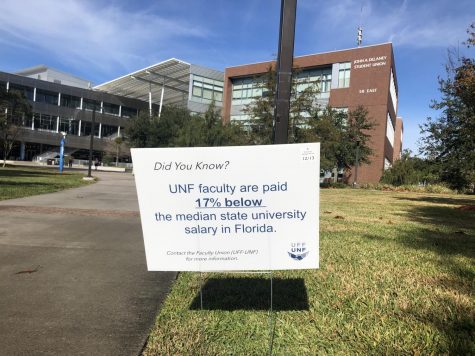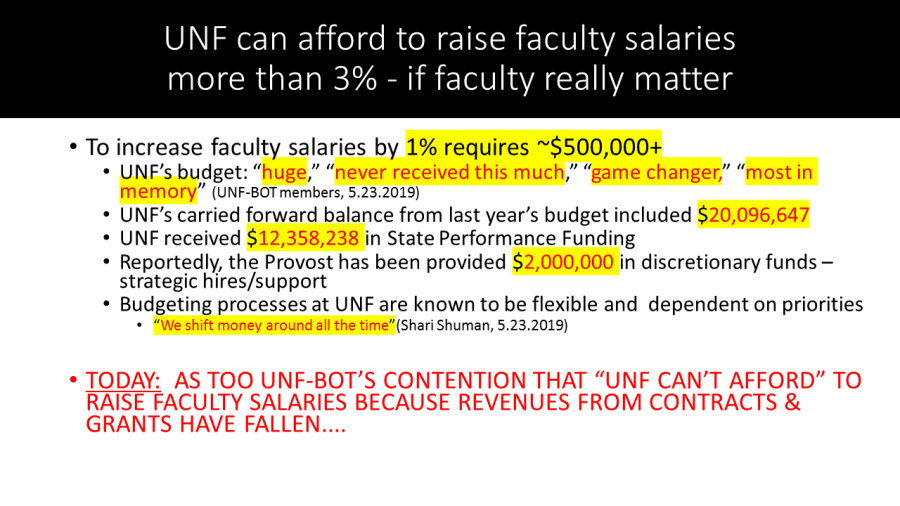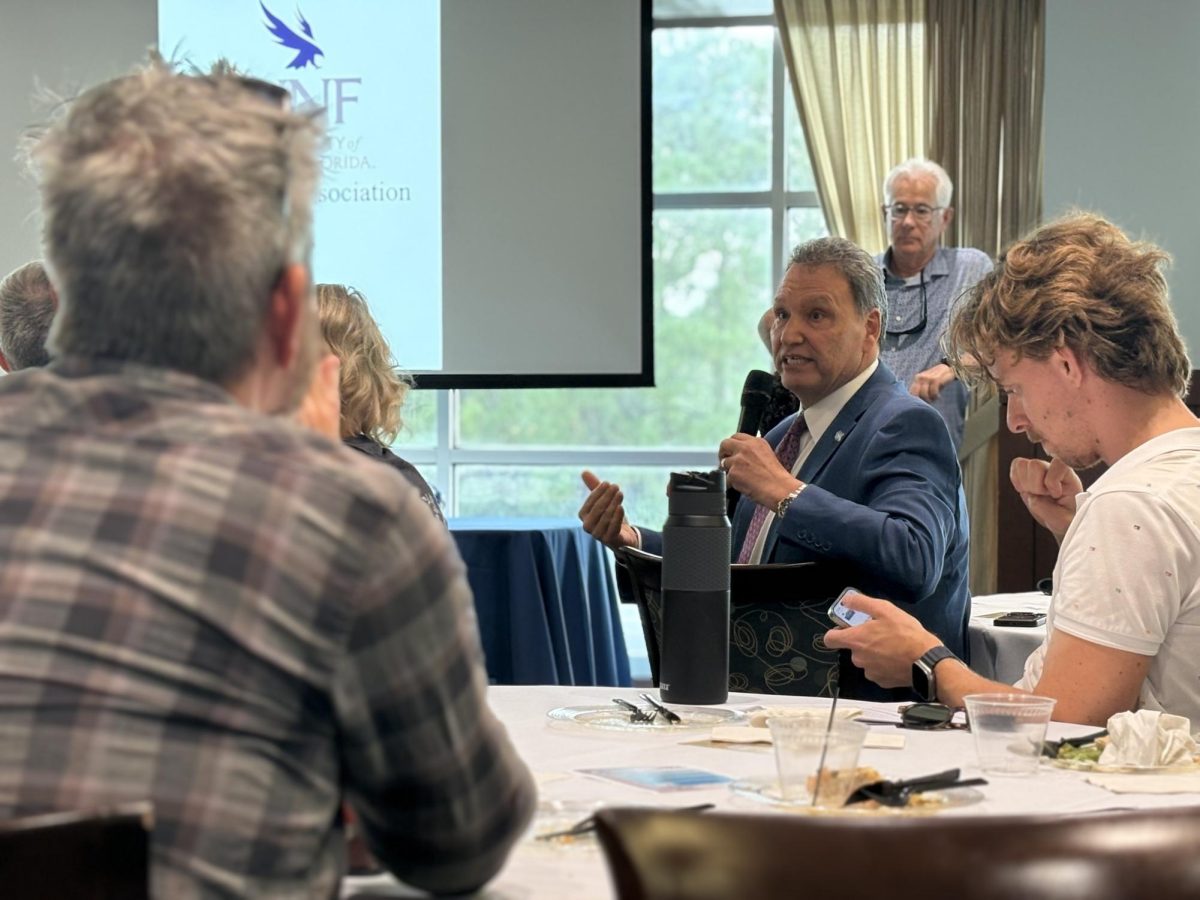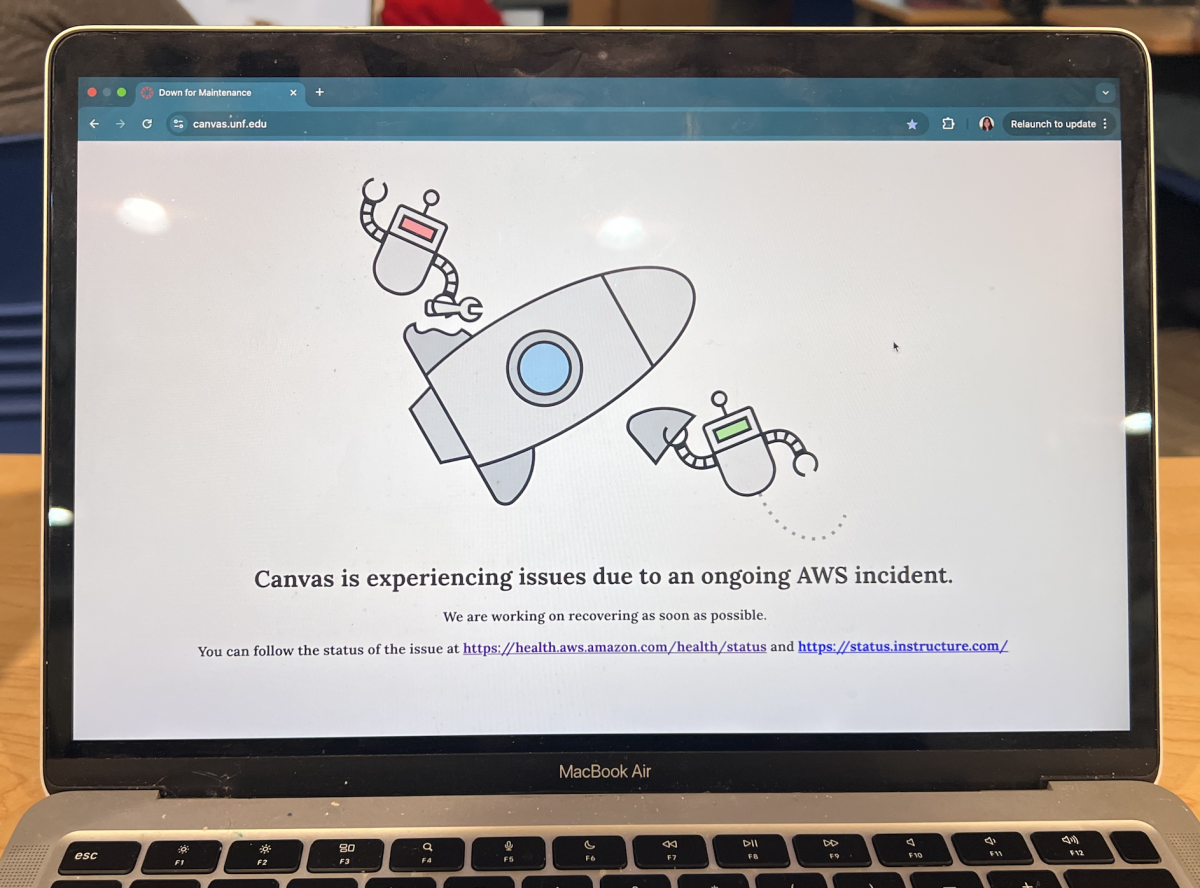The United Faculty of Florida (UFF) continues to negotiate salary increases for UNF faculty after another bargaining session for their Collective Bargaining Agreement (CBA) on Jan. 8. The Jan. 8 meeting consisted of primarily non-economic articles and the Board of Trustees did not have a counter-proposal to address the salary issue.
Previously, UFF-UNF proposed a 9 percent increase of faculty salaries in fall 2019 to the BOT, but the BOT counter-proposed with a 2.5 percent increase and the two sides did not agree to the terms. UFF-UNF insists that the BOT can afford to invest more money into UNF’s faculty, considering the university has a standing 2019-2020 budget of $193 million. According to UNF-UFF President Kally Malcom, it would take roughly $500,000 to increase the faculty’s salaries by 1 percent across the board.
Malcom said there were students who were concerned about the possibility of tuition going up.

“What faculty are asking with their 9 percent across the board salary increase is essentially a $4.5 million price tag,” Malcom said. “It sounds huge on its own, but tucked within a $193 million budget at least, the university has it. They have it without touching tuition, without touching fees.”
The average salary of UNF faculty is $71,100 and professors like Malcom insist that this is not a livable wage for people in higher education.
“That sounds like a really livable wage,” Malcom said. “[Some students] are saying why are you fighting? You make a living wage. Yes and no. We’ve gone to undergraduate school where we’ve taken on our student loan debt. And then we move to graduate school where we take on additional debt and by the time we’re finished becoming an expert in our field, we’ve accumulated quite a bit of debt and we’re starting our lives a little bit later.”
UFF-UNF claims that UNF faculty is paid 17 percent less than the median salary of faculty from other Florida universities, but how exactly did this gap come to fruition? A combination of the 2000s economic crash and a staff raise and hiring freeze at UNF are to blame, according to Malcom.
“We’ve been studying it and the market crash in 2008 caused an incredible chill over the global economy and that definitely affected institutions,” Malcom said. “They had more students than ever, we saw less funding than ever.”
The freeze took place during former President Delaney’s tenure, and the faculty salary figures have not recovered from that.
“There were no raises for a long stretch of time,” Malcom said. “The first raise after that freeze, I believe, was in 2014 and that was a 4 percent salary increase. But there had been a stretch of years where faculty received no salary increase.”
The BOT members have changed since then, and UNF has a new president and provost involved in the bargaining discussions, so the problem has been made more complicated with the new faces involved. Malcom herself just started her career with UNF in 2014 as well.
“So it’s a ten-year-old problem and we have new upper administration,” Malcom said. “Certainly the president should be involved and President Szymanski is new as well, and so is Provost Rhodes. So it’s a problem that they’ve inherited, and we recognize they’re in a tough spot but the faculty are interested in moving the university forward and pushing our research agenda and rising to the level that we want to be at in the strategic plan, but you can’t do that when your wages are depressed by 17 percent below the median.”

Spinnaker has reached out to the BOT for interviews, but they are not allowed to discuss the ongoing contract negotiations.
The negotiations will continue, but there is no date set for the next bargaining session between UFF-UNF and the BOT. If the two sides do not approve the new CBA, then they’ll go to impasse, which means the decision will be judged by an impartial magistrate.
—
For more information or news tips, or if you see an error in this story or have any compliments or concerns, contact editor@unfspinnaker.com.

















Michael Glenn | Jan 25, 2020 at 8:52 am
If UNF wants to be on par with other state of Florida universities the staff has to be paid a competitive wage. We have a student at USF Tampa as well and the costs to attend are comparable to UNF. Does USF Tampa have similar challenges paying a competitive wage? Quality faculty is the lifeblood of a University, I have seen first hand how they can make such a positive impact on students. I hope UNF takes a closer look at this and figures out a solution.